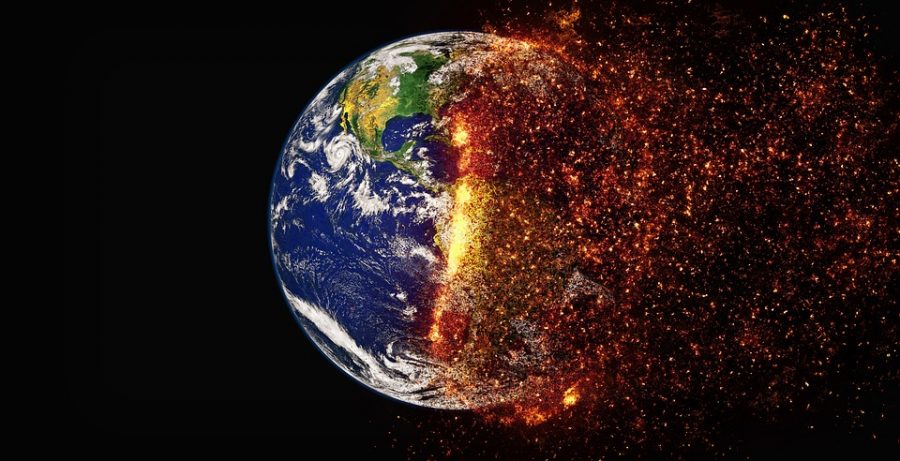Managing a Catastrophe: What Can We Do?
Climate change isn’t yet an existential threat, so what can the average person due to keep it that way?
December 17, 2018
Climate change is a confirmed existential crisis. As dissected by the New York Times, a recent study done by Intergovernmental Panel on Climate Change found that the Earth could warm by as much as 2.7 degrees by 2040. This will result in catastrophic consequences such as rising sea levels and famine ensuing. The reports are in, and whether one believes in it or not, the scientific consensus has confirmed the existence and the imminent threat of climate change and something needs to be done about it.
Obviously, systematic change, such as heavy regulations on CO2 outputs and fossil fuel mining, should be the forefront of any movement to mitigate climate change; however, it is also necessary that each individual takes action and changes their daily lives to help suppress the wave of climate change. Here are some ways to do that:
-
Eat less meat and drink less dairy: sadly the most effective change is also the most radical. According to the Guardian, going vegan— even just cutting down one’s meat consumption— is the most effective way to curb one’s greenhouse gas output.
-
Walk, carpool, or take public transport: these options may not always be viable but should be considered when possible.
-
Save energy by adjusting your thermostat regularly, and not leaving appliances on standby.
-
Support your local parks, either with your patronage or just with your appreciation.
-
Eat local, organic, and less. All of these habitual changes can cut down on money and greenhouse gas output!
-
Hold politicians responsible! Stay in tune with climate measures and make sure your voice is heard by your congressman!




